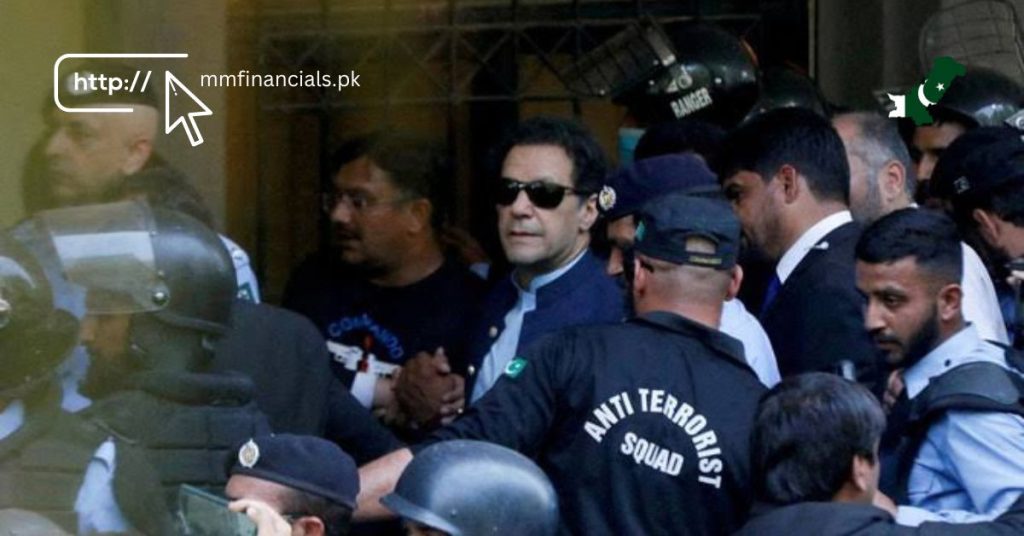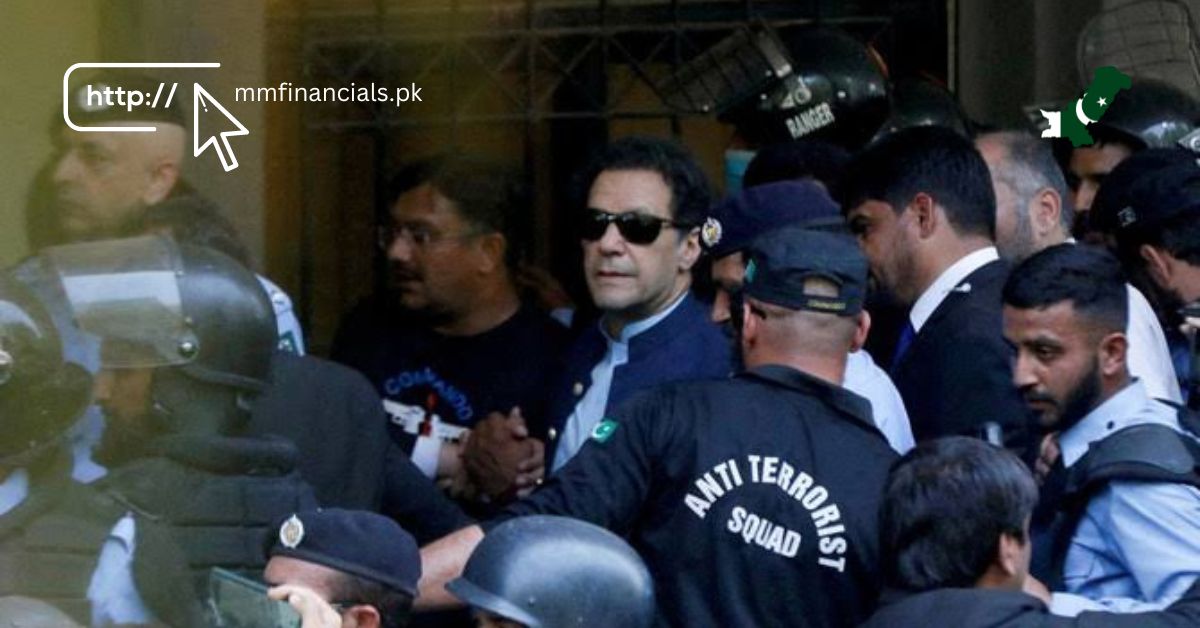The Islamabad High Court (IHC) granted bail to Pakistan Tehreek-e-Insaf (PTI) founder Imran Khan on Wednesday in the 190 million pound corruption case. The decision came after a two-member bench, comprising IHC Chief Justice Aamer Farooq and Justice Tariq Mehmood Jahangiri, reserved the verdict following the conclusion of arguments by the National Accountability Bureau (NAB) prosecution team and Imran Khan’s counsel, Sardar Latif Khan Khosa, a day earlier.
Imran Khan’s bail was set at Rs1 million, although he will not be released from prison immediately as he is still serving sentences in the cipher and iddat cases. However, his sentences in two separate Toshakhana cases were suspended by the IHC.
During Tuesday’s court hearing, NAB Special Prosecutor Amjad Pervaiz informed the court that the trial of the former prime minister and his spouse was nearing conclusion. He stated that out of 59 prosecution witnesses, 30 had already testified, and the prosecution planned to reduce the number of remaining witnesses by 10 to 15, presenting the rest for recording statements. Pervaiz cited a Supreme Court judgement where bail petitions were rejected under similar circumstances.
COURT ORDERS BAIL FOR IMRAN KHAN IN CORRUPTION CASE
In a significant development, the court issued an order today granting bail to Imran Khan, the founder of Pakistan Tehreek-e-Insaf (PTI), in a corruption case. The court’s decision came after considering that the investigation in the matter had been completed, and it deemed the “continued incarceration” of Imran unnecessary.
While the prosecution had expressed concerns that Imran, as a political figure, might tamper with the evidence or influence the trial, the court found no substantial evidence to support these apprehensions.
The court order stated, “The instant petition is allowed, and the petitioner is admitted to bail after arrest in the aforementioned reference subject to furnishing bail bonds in the sum of Rs1 million.”
It’s important to note that the court’s observations are tentative and are not intended to prejudice the trial court’s decision in the reference against Imran.
Imran Khan and his wife, Bushra Bibi, were indicted in this case by a Rawalpindi accountability court back in February. This latest development marks a significant turn in the legal proceedings surrounding the case.
CORRUPTION REFERENCE
In December, the National Accountability Bureau (NAB) filed a corruption reference against Imran Khan and seven others, including his wife, in connection with the Al-Qadir University.
The case alleges that Imran and Bushra Bibi obtained billions of rupees and land worth hundreds of kanals from Bahria Town Ltd to legalize Rs50 billion identified and returned to the country by the UK during the previous PTI government.
According to the reference filed by NAB, Imran, who is currently incarcerated, allegedly played a “pivotal role in the illicit transfer of funds meant for the state of Pakistan into an account designated for the payment of land by Bahria Town, Karachi.” The reference further claimed that despite being given multiple opportunities to provide information, the accused deliberately refused to do so with mala fide intention.
Property tycoon Malik Riaz Hussain and his son Ahmed Ali Riaz, Mirza Shehzad Akbar, and Zulfi Bukhari are also suspects in this case. However, they absconded instead of joining the investigation and subsequent court proceedings and were subsequently declared proclaimed offenders (PO).
Additionally, Farhat Shahzadi, a close friend of Imran’s spouse, and Ziaul Mustafa Nasim, a legal expert for the PTI government’s Assets Recovery Unit, were also declared POs. As a result, the properties of all six accused have been frozen.
Initially, Judge Mohammad Bashir was scheduled to indict the former premier and former first lady on January 26, but the indictment was deferred to January 30. It was then rescheduled for February 10 but was deferred again until February 27. This case continues to draw significant attention due to its implications and the involvement of high-profile individuals.
NAB REFERENCE ALLEGES CONSPIRACY AND CORRUPTION INVOLVING IMRAN KHAN AND OTHERS
A recent National Accountability Bureau (NAB) reference has shed light on alleged conspiracy and corruption involving several prominent figures, including Imran Khan, the founder of Pakistan Tehreek-e-Insaf (PTI), and others.
According to the reference, the accused were provided with multiple opportunities to justify and provide information regarding their actions. However, they deliberately refused to do so, indicating malafide intentions. It further stated that the responses from the accused failed to rebut the allegations, leading to the conclusion that they had committed offenses under the National Accountability Ordinance (NAO).
The investigation revealed that the accused, in connivance with each other, had engaged in corrupt practices, benefiting certain individuals at the expense of the state. Imran Khan was highlighted as playing a pivotal role in the illicit transfer of funds, ultimately benefiting property tycoon Malik Riaz.
Additionally, Mirza Shehzad Akbar, a former special assistant to the premier and Asset Recovery Unit chief, was implicated for his crucial role in the illegal design of funds meant for the state. Malik Riaz was accused of actively aiding, abetting, and conspiring with other respondents to divert funds intended for the state.
Imran Khan’s wife, Bushra Bibi, and Farhat Shahzadi were also implicated for their significant roles in the alleged illegal activities, with the latter being described as a front woman for Imran and his spouse.
The reference concluded by stating that there was sufficient incriminating evidence to proceed against the eight suspects. It pleaded for their trial and punishment in accordance with the law by the court or any other authority entrusted with the reference.

















